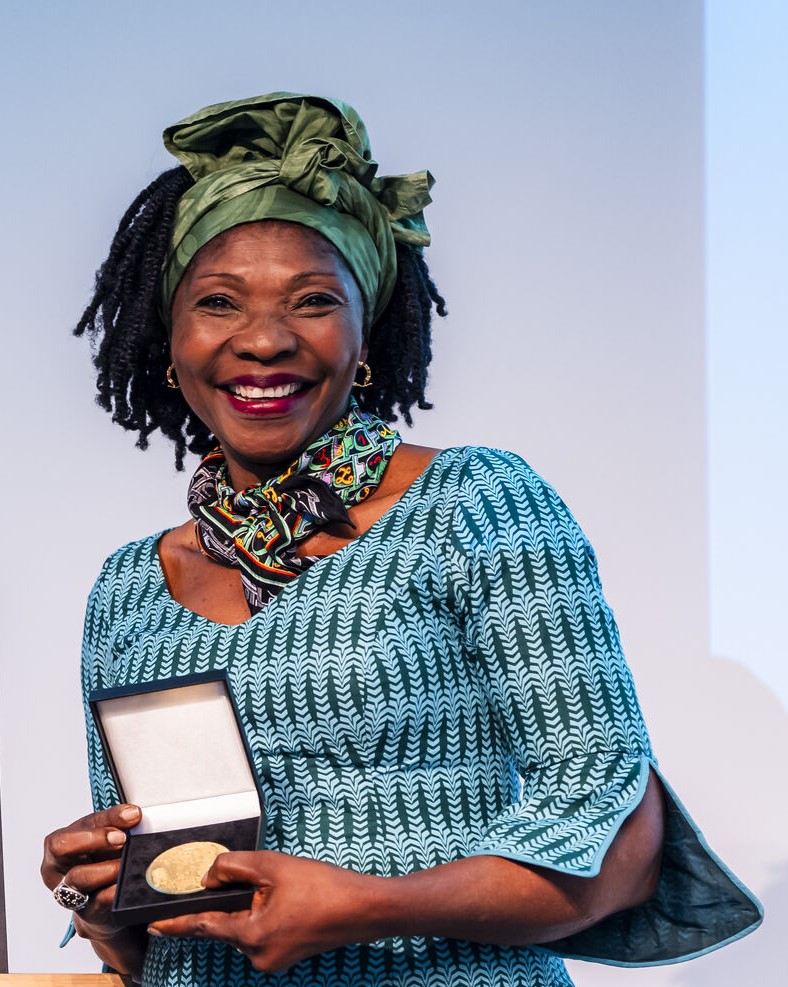Cécile Bibiane Ndjebet empowers African women to secure land and forest rights, advancing gender equality and environmental sustainability.
Cécile Bibiane Ndjebet is a Cameroonian environmental activist, agronomist, and social forester who has spent more than thirty years fighting for women’s rights to land and forest resources in Africa. She is the founder and president of the African Women’s Network for Community Management of Forests (REFACOF), a regional platform established in 2001 that now operates in 20 countries across West and Central Africa, promoting women’s participation and gender equity in natural resource management.
Starting her career in 1986 as a civil servant in Cameroon’s Ministry of Agriculture, Ndjebet quickly recognised that the voices of rural women, who relied on land and forests, were often excluded from relevant policies. To address this disparity, she pursued a Master of Science in Social Forestry at Wageningen Agricultural University in the Netherlands. Her studies focused on integrating social systems with environmental conservation. Currently, she is completing a PhD that examines gender relations, land access, and the socio-economic conditions of rural women in Cameroon.
Passion and purpose through REFACOF
Ndjebet’s passion for equality and conservation comes from her upbringing in a forest community in rural Cameroon, where she witnessed how women laboured daily on land they did not own or inherit. This shaped her belief that women’s access to land is key to both gender justice and environmental sustainability. Thus, she founded The African Women’s Network for Community Management of Forests (REFACOF).
REFACOF is a regional advocacy platform founded in 2009 to promote women’s rights related to land and forest tenure across West and Central Africa.
Through REFACOF, Cécile Bibiane Ndjebet has led a movement that has influenced land rights policy and climate governance across these regions. The organisation has successfully advocated for women’s participation in national and regional forest governance structures, securing at least 30% representation of women in decision-making spaces such as REDD+ (Reducing Emissions from Deforestation and Forest Degradation) and climate change platforms. REFACOF has also contributed to legal reforms that address both statutory and customary laws, ensuring women’s land and forest rights are recognised and protected.
Beyond advocacy, REFACOF promotes capacity building and collective action, training women to understand their land rights, organise locally, and influence policy processes. The network connects women’s organisations across 20 countries, enabling knowledge sharing, policy engagement, and stronger regional coordination.
These efforts have helped improve women’s land tenure security and advance gender-responsive climate policies that contribute to women’s economic empowerment and social autonomy.
The climate-cum-gender activist’s influence extends beyond Africa. She has participated in several international environmental policy platforms, including the United Nations Framework Convention on Climate Change (UNFCCC) and the Global Gender and Climate Alliance (GGCA). She also serves on the UN Decade on Ecosystem Restoration Advisory Board and is a member of the Network of African Women Environmentalists (NAWE).
Cécile Bibiane Ndjebet has received significant global recognition for her dedication to linking women’s empowerment with environmental restoration. In 2012, she was elected Climate Change Champion of the Central African Forests Commission (COMIFAC) for her leadership in promoting gender equality in climate action. She was further honoured with the 2022 Wangari Maathai Forest Champions Award and the 2025 Kew International Medal.



